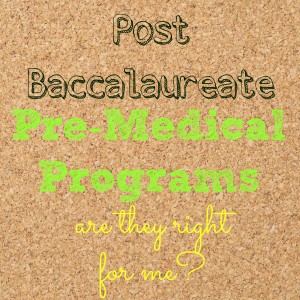Feeling Lost? The Best
Careers Change and Evolve
by Melanie Buford
A senior psychology major came into my office the other day. She dropped her bag, plopped down into a chair, and said “I’m lost!”
With relatively little prompting, the story came out. She already knew her long term goal: to be a child and family therapist. A faculty mentor had recommended a graduate program for her, and, doing very little of her own research, she applied to the program and turned her attention back to school. She was accepted, fortunately, but upon learning more about it, she realized that it was a business focused program, not a therapeutic one.
“That’s disappointing,” I said, “But it sounds like you have a good sense of what you’d like to do in the short term—graduate school—and the long term—child and family therapy.”
“No,” said the student, “you don’t understand. I’m lost. What will I do now? Program deadlines have passed. I can’t go to graduate school now. I have to wait a whole ‘nother year!”
How often does “I’m lost” mean “things didn’t turn out as I expected?”
Here’s the thing, and it’s something I tell students over and over in spite of the fact that it doesn’t reassure them at all: The best careers, just like the best lives, aren’t linear.
So many people are paralyzed by the idea of choosing a career—at the age of 20—that they’ll have to spend the rest of their lives on. This is entirely reasonable. And yet, students seem equally intimidated by the idea that their career will change and evolve in natural and unpredictable ways.
Very few people look up as a junior in college and plan out a 40-year career during which everything happens exactly as they expect it to and they are perfectly successful and satisfied. How incredibly uninspiring that would be. The purpose of college career goals isn’t to remain unchanged for half a lifetime, but instead, to interact with the world and be changed. Our mission is to let the world change us, not to make it to the finish line exactly as we started.
The most interesting people will tell you that they never could’ve predicted where their careers would end up. This is why their stories are interesting, and this is why people want to learn from them. We are inspired by people who are open to life and let it change them, people who evolve in unexpected ways.
We instinctively know this is true. Most of our career advice has this idea at its core.
Take the somewhat controversial mantra— “follow your passion.” Cal Newport* and others have come to challenge this advice as, at best, misleading, and, at worst, harmful. But there is wisdom embedded here and it isn’t “ignore practicality,” but rather, “be open to inspiration.”
The near universal emphasis on networking is yet another example. Yes, networking is indispensable in finding a job in your field of interest. This is undeniably true. But the hidden value of networking is to expose you to people and ideas outside of your comfort zone. Your family and friends typically want to help you achieve the goals you’ve identified right now. Networking exposes you to people who don’t know your background, your goals, or the ways that you may already be limiting yourself. This opens you up to serendipity, and serendipity will push you to evolve.
“I’m lost” can be the beginning of amazing things but it’s not a place of comfort. It can, however, be a place of humility. It is often when we’re most unsure of ourselves that we’re most open to new directions.
This was the case for my senior psychology major. After a full session during which we discussed several possible options for her newfound open year, I brought her focus back to the long-term goal of becoming a child and family therapist.
“Did it occur to you,” I asked, “that many of the clients you will work with as a therapist will have come to you because they’re feeling disappointed and lost? Might this experience of disappointment, and perhaps a few more down the road, help to make you a better, more empathetic therapist?” Her nod was reluctant.
Our lives are full of surprises. If, as a young professional, you’re struggling with the overwhelming task of figuring out your future, I encourage you to tackle it one step at a time. If you’re still in school, focus on creating a plan for what you’ll do the year after graduation, rather than what you want to do with the “rest of your life.” Go to workshops, meet new people, travel if you can. These things will inspire you to set new goals. Most importantly, be patient with the process.
Embrace your failures and “lost” years as something inevitable and challenging. Delays to your plan can be opportunities to improve and refine it. Don’t waste these opportunities. Take full advantage.
*Newport, C. (2012). ‘Follow Your Passion’ is Bad Advice [Video file]. Retrieved from http://99u.com/videos/22339/cal-newport-follow-your-passion-is-bad-advice.
Melanie Buford is the Program Coordinator/Adjunct Instructor in the Career Development Center at the University of Cincinnati.
Courtesy of the National Association of Colleges and Employers



